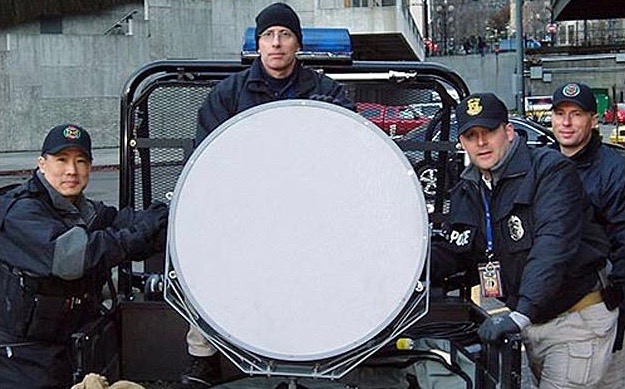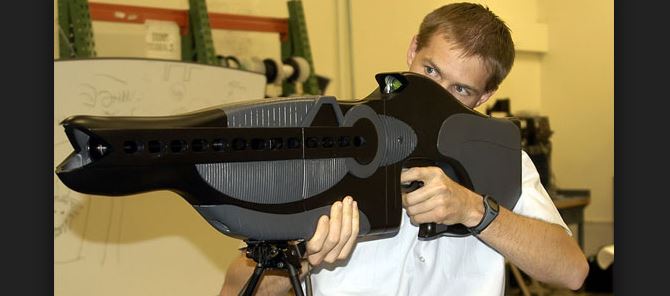
The lie of the sonic attacks
HAVANA — There is no safer place for U.S. diplomats than Cuba.
It is unremarkable to see them jogging along the Malecón, dining at the best restaurants or bathing on the shore. Here, they have never feared being killed or kidnapped, as happens in most other countries. Nothing explains that this might have changed, much less than it changed due to the puzzle of mysterious “sonic attacks” against functionaries from that country.
Scientists everywhere reject the possibility that something like this is happening. The U.S. government itself pleads ignorance of the matter and acknowledges that it lacks proof to blame Cuba, which explains even less why Washington is taking measures against the island.
Its only argument is that Cuba must protect its diplomats — nobody knows from what. If the United States applied this standard to the rest of the world, it would have relations with very few countries. Besides, Washington has little moral high ground to tell this to a nation whose diplomats have indeed been murdered and attacked most brutally on U.S. soil.
Maybe diplomacy and journalistic objectivity force people to use words like “alleged,” “unidentified” or “unproven” to refer to the so-called sonic attacks, but any person who is halfway informed and has a head on his shoulders knows that it’s a king-size lie.

Cuba is noisy (perhaps excessively) but the noise is neither ultrasonic nor infrasonic. Rather, it’s sufficiently evident and democratic to affect us all equally.
The issue, then, is to determine what compels the U.S. government to lie in this manner and to use the lie as an excuse to take measures that further damage the state of relations between the two countries.
The first theory is that the attacks on functionaries — sonic or not — resulted from technical devices used for intelligence tasks by the United States. There are uncorroborated reports that the problem originated in LRAD-RX devices designed by the American Technology Corporation (ATC) for communications between the Central Intelligence Agency and its agents.
[Translator’s Note: LRAD-RX stands for Long Range Acoustic Device, Remotely Operated. ATC is based in San Diego, Calif.]
According to the reports, when the damage to human health produced by use of these devices became known, a decision was made to dismantle them, to which end it became necessary to suspend consular services and other activities at the embassy. At first, the damage caused by Hurricane Irma was used as an excuse, but everything indicates that later the story was switched to protecting the functionaries.
This version does not exclude another, which is more integral and is attune to the characteristics of the U.S. government. To Donald Trump, the foreign policy of the United States is to scare the world. His style of negotiation reminds us of The Godfather: if you do what I tell you, I shall be condescending with you; otherwise, I’ll chop the head of your favorite horse.
It’s no accident that people like Mexican Jorge Castañeda, well informed about the twists and turns of U.S. policy, says that only Cuban intervention can lead to the toppling of President Nicolás Maduro in Venezuela.
Presumably, Cuba has been pressured in that direction but Cuba has not ceased to insist on its support for the Bolivarian government. Being ignored annoys Donald Trump no end, and the truth is that there’s no need for sonic attacks to limit his ability to listen to all those who try to control his loose lips.
The third element to consider is the pressure from the anti-Cuban sectors in the U.S. Congress. Pleasing them comes cheap to Trump, in exchange for a support that becomes desperate in other aspects of the United States’ domestic and foreign policies, as well as support for the survival of his own administration, accused and investigated from all sides.
In sum, the “alleged” sonic attacks have come at the perfect time to unleash the perfect storm against Cuba. This includes frightening U.S. travelers and canceling the granting of visas indefinitely, which places Cuba (though not explicitly) among the countries whose citizens are barred from traveling to the U.S.
This happens at a time when Cuba is going through a difficult economic situation, made worse by the enormous damage caused by Hurricane Irma. Not surprisingly, there has not been a single gesture of U.S. solidarity with the Cuban people; quite the opposite.
In reality, the U.S. system is not designed to help the resolution of crises but to hinder it, to the point that the affected countries have no alternative but to surrender to Washington. Apparently, this is how they read the Cuban case.
Contrary to what we might have thought a few months ago, coexistence with the United States is turning increasingly more complicated for Cuba. Paradoxically, the reason is the weakness of an administration like Donald Trump’s, which is incapable of dealing with its own limitations and acting with the dignity of diplomacy, even in the case of empires.
[Photo at top of a ‘sound cannon’ developed by the LRAD Corporation in San Diego (Calif.) to stun and disorient demonstrators.]
Progreso Weekly authorizes the total or partial reproduction of the articles by our journalists, so long as the original source and author are identified.

